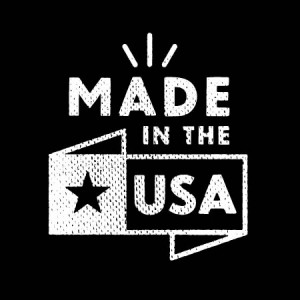
**Federal Trade Commission Staff Provide Guidance on Regulations Proscribing the “All or Virtually All” Standard for Made in the USA labeling** . . .
By: Brent E. Johnson
The Federal Trade Commission (FTC) has a role in regulating “Made in the USA” labeling. 15 U.S.C. § 45a. See prior post. Under FTC regulation if “virtually all” of a product is made in the United States, then it is permissible to use the Made in the USA label. 62 FR 63756-01 at pp. 63757, 63764–65. Unfortunately, this “virtually all standard” is vague – and the FTC has declined to come up with a bright line test for manufacturers. Id. The FTC’s Enforcement Policy Statement informs that in making a “virtually all” determination, the FTC will look at factors such as: (1) the portion of manufacturing costs attributable to foreign parts and processing; (2) whether the foreign parts and processing are significant to the final product; and (3) how far back in the manufacturing process the foreign content is. Even with this broad guidance, a case by case analysis is needed on “Made in the USA” labeling.
Fortunately, when the FTC closes an enforcement proceeding on a case, it often provides a closing letter to the target. Such a closing letter may contain an explanation of the findings of the investigation and the rationale for why the case was closed. A number of these FTC Closing Letters are available on the FTC website: https://www.ftc.gov/enforcement/cases-proceedings/closing-letters-and-other-public-statements/staff-closing-letters. Recent FTC Closing Letters regarding “Made in the USA” labeling have highlighted the importance of the second factor (see above) — whether foreign parts and processing are significant to the final product. With respect to Loctite glue made by the German multinational Henkel, the FTC looked at the cost and function of cyanoacrylate (an ingredient imported and added to the U.S. manufacturing of the glue). Because both the cost and function of cyanoacrylate were significant in the glue, the FTC decided that it was inappropriate for Henkel to use an unqualified “Made in the USA” label. A similar finding was made with respect to Gorilla Glue earlier this year. In another recent closing letter concerning the product Spray Pal (a cloth diaper cleaning device) that included a foreign-made clip used to fasten the diaper to the device, the FTC determined that, while the cost of the clip may be small relative to overall manufacturing costs, it nevertheless was essential to the function of the product. As such, an unqualified claim of “Made in USA” was not permissible. Companies need to be mindful that the FTC is not looking merely at the cost factor. If an inexpensive foreign component is integral to the design and function of the product, it may be significant enough to negate a claim of “Made in the USA.”
